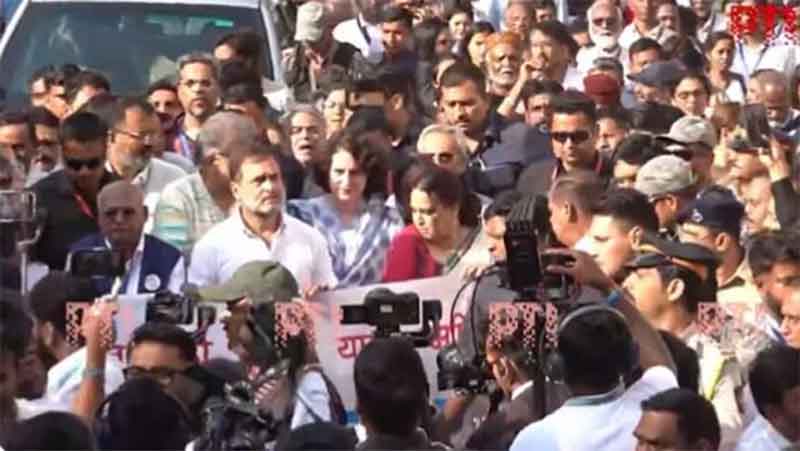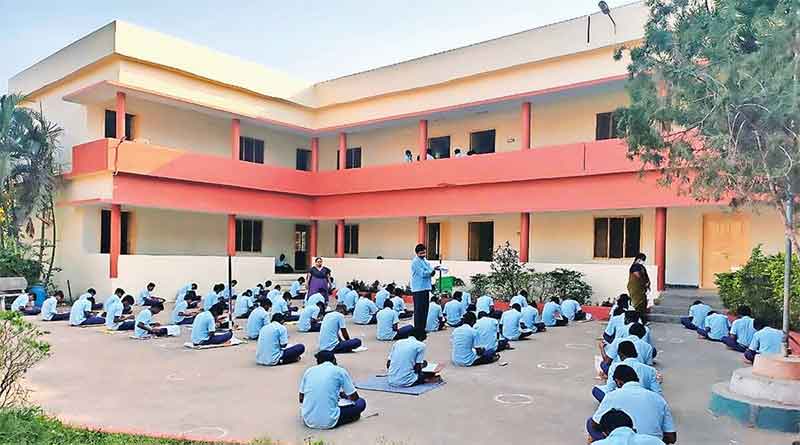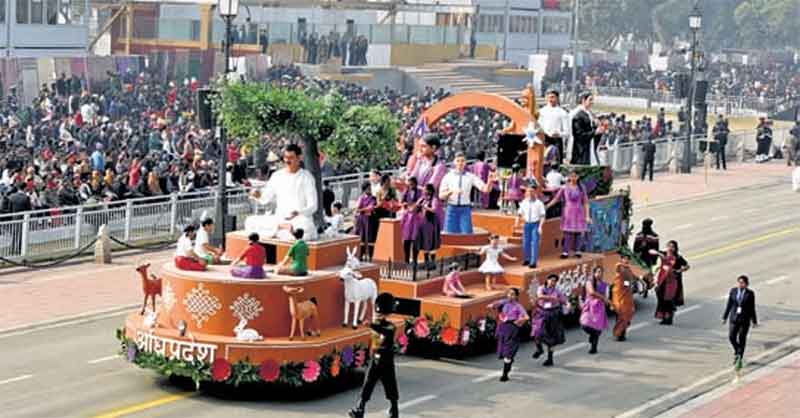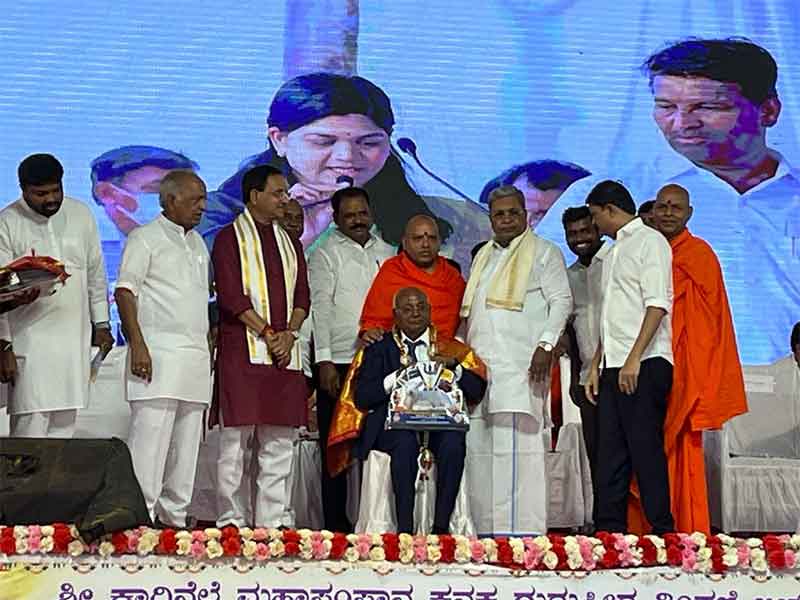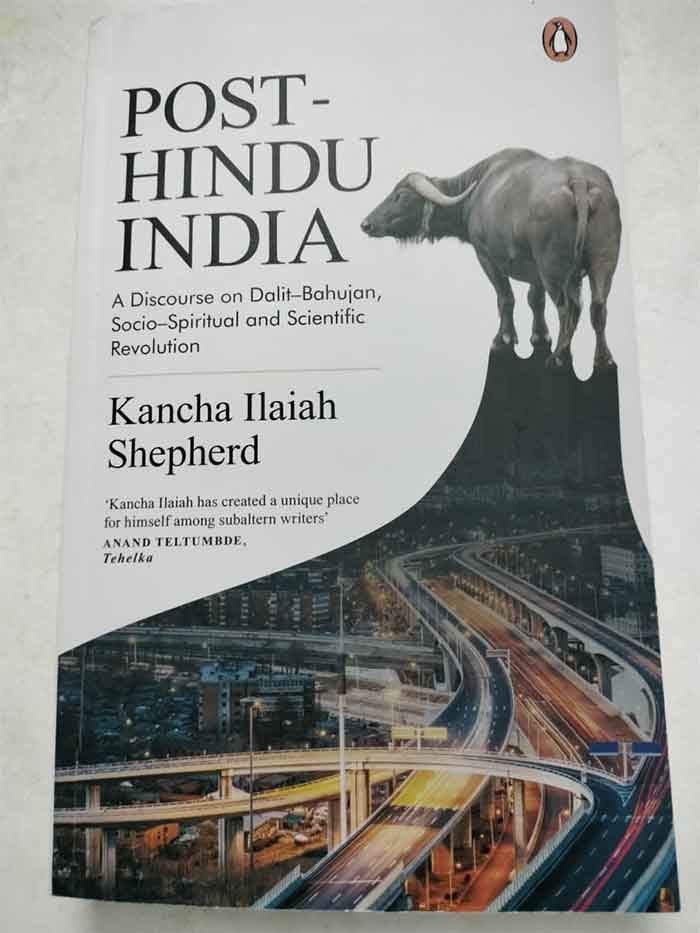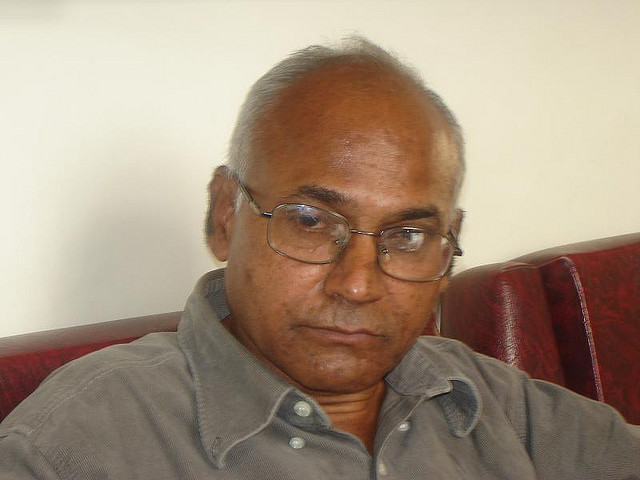
On May 17 suddenly I got a video on my watsapp. When I opened it I saw the title “Kancha Ilaiah shepherd: Bharat Vikhander”. Two supposedly experts on my work, Sharada Narayanan and Shubhodeep Mukhopadhyay, wrote an essay on me and my work in a book that was said to have been edited by Rajiv Malhotra and Divya Reddy. Both the authors talked about their essay.
The title of the book was more amusing,“ Ten Heads of Ravana—A Critique of Hinduphobic Scholars”. In those ten heads my head is supposed to be one. Their talk itself was abusive.
Later the mike was handed over to Madhu Kishwar who abused me in the talk in a choicest language to the point of crucifying me. (see this https://www.youtube.com/watch?v=jMzzxROTF0c)
I then ordered the book and read.
First let me list out the grave wanton lies about what I said in Post-Hindu India on page 238 in reference number 11. They wrote:
“For example he explicitly calls for a civil war to exterminate Brahmins globally in order to make Indian society more energetic….”. ( Ten Heads of Ravana p. 296)
Nowhere in page 238 of Post-Hindu India such a sentence, with a call for extermination of Brahmins, is written.
Again in page 310 of the book they wrote, “ It is to be noted calling for the genocide of Brahmins a minority community which makes up less than three per cent of India…” Nowhere in page 182 of the book they referenced again, such a sentence of genocide of Brahmins exists. These are their deliberately worked out concoctions.
Why did they write these kinds of false non-existing sentences in my book? It is very clear that this team is meant to crucify me exactly like the Pharisees concocted false stories on Jesus Christ, in order to crucify him.
Malhotra’s team seems to have acquired a crucifixion cultural mentality.
Look at their bad collection of facts about me. They said “ He was Associate Professor in the Department of Political Science at Osmania University till he retired in 2012” I became a full Professor in 1998 and served as the Head Department for two years and retired in 2012, with twelve years of service as professor”.
They say that Why I am Not a Hindu was published with the financial help of Rajiv Gandhi Foundation (p. 310). I never took any money from any foundation to write or to publish my books. The field work for Why I am Not a Hindu and Post Hindu India (almost for ten years) was done entirely by spending from my own salary.
The fact that Ten Heads of Ravana is dedicated to ‘All Intellectual Ksatriyas’ shows how casteist they are.
All my books are written for development of the productive masses of India and they are an embodiment of the Indian civilization and knowledge systems of the food producers, artisans and adivasi knowledge systems, but not of the reflections of the Brahminic books, with which the masses do not have any engagement in the living history of this nation.
They all were written in Sanskrit and that language was not theirs.
RAVANA AND EVIL
In the introduction Malhotra writes “The historical Ravana disrupted society’s Hindu structures, and the heads chosen for this book are considered by Hindus today to be individuals doing something similar…” Who are these individuals? They are: Romila Thapar, Irfan Habib, Shashi Tharoor, Ramachandra Guha, Sheldon Pollock, Wendy Doniger, Devdutt Pattanaik, Kancha Ilaiah, Audrey Truschke and Michael Witzel.
According to Brahminic theory Ravana represented the evil of the universe and got killed by Rama. His kastam (funeral fire) keeps burning forever. Perhaps with a view that if that kastam does not keep burning, or rather the moment it stops burning, Ravana will resurrect and re-establish his kingdom again. Malhotra and his team settled down at Ravana Kashtam to keep a watch whether all his ten heads, in reality the heads of ten authors, they hate in the present Kaliyuga of democracy, be burnt properly.
THE INTENT OF THE BOOK
The book shows how Rajiv Malhotra and his team hate the idea of social change; the idea of human equality; the idea of casteless society; the idea of man-woman equality in the name OF Bharata Dharma.
Quite surprisingly News 18 which publicized the book launch on March 3, 2023 said, “ The team of authors said they had invited the 10 scholars whose works they had critiqued to the event but had not got any response from them”. This is a lie. I did not get any invitation in any mode from them. If they were to give me a flight ticket from Hyderabad to book a launch place I would have gone.
Their right to write a critical account of any writer is undeniable in a democracy, but that writing cannot be an account of a Police report. The editors and authors claimed that they undertook the effort to protect the Hindu Dharma and Indian civilization. But the whole book in general, the chapter on my work and my person in particular, does not show any serious reading and goes to the roots of my evaluation of village labour economics and culture. They do not seem to have to do anything about the Shudra/Dalit/Adivasi production and civilization. Because my two books they said to have studied, required a deep understanding of the rural system of production. They have no clue what the Indian village agrarian and artisan system is.
They tried to attack me from their Puranas and Shastras point of view. I reject all those texts because they have nothing to do with Indian land, labour and production and spirituality that got constructed by the Indian masses for millennia.
WRITING BASED ON FIELD WORK
Both Why I am Not a Hindu and Post Hindu India are written based on field work among the productive communities, which in caste terms are Shudra, Dalits and Adivasis. From Harappan civilization to present day civilization the production process, the technology, the methods of production, peoples’ knowledge of nature and their spiritual culture made India what they are. Both my books reviewed history and civilization for the first time from the village upwards. Both the authors do not seem to know that whole knowledge. My criticism of Brahminism is based on that rooted knowledge of Indian people, not about the knowledge of gurus and saints.
They were searching for my knowledge of Vedas, Upanishads, Ramayanam, Mahabharatam and other Puranas, written in Sanskrit in ancient and medieval times. I never treated those books as representative of Indian knowledge. My critique of Brahmin, Baniya, Ksatriya life was from the point of production and distribution of goods, commodities, the man-woman relations that shaped up in the civilization and cultural domain in the process of production.
Their books and their gurus have no contribution to the food and other material and culture production at any point of time in Indian history. The Shudra knowledge system and Brahmin knowledge system operated in two parallel lines without a meeting point anywhere.
Most of the books and the gurus they referred to in the essay were alien to the historical agrarian process. In fact, no book dealt with anything serious about the Indian food producers, their knowledge, culture, spiritual or material. No Brahmin guru, or Ksatriya ruler respected them with a view that they too were/are human beings. Their productive labour was treated as anti-Santhan Dharma. That’s why I did not bother about such books.
Can they show any ancient and medieval Sanskrit book that wrote one full chapter on the Shudra production process and their spiritual systems. Almost all the books were written to establish control mechanisms with Danda Neethi. No book talked about doing justice to laboring masses. The Dharma that they repeatedly referred to in this whole book is irrelevant to the Indian masses.
METHODOLOGY OF REFERENCING
All through their essay they attacked me for not referencing my books. They were searching for references for my arguments from their Sanskrit books.
Where are references in Sanskrit books? Whom did their gurus who wrote the Sanskrit books quote?
It did not strike these writers and the editors that there are no references in Vedas, Upanishads or Kautilya’s Arthashastra and Manu’ Dharma Shastra. Why do they want my books written from mass production knowledge, science, technology and spirituality point of view to be referenced from unconcerned Sanskrit books?
The idea of Dharma they constructed in those books was to the advantage of the anti-production and Shudras/Dalits/Adivasis. How did those books without references become authentic and rather sacred? Sacred for whom and what for? What is Dharma in those books? Is it Justice for the Shudra/Dalit/Adivasis or injustice? All their ideas and of Dharma have been handed down injustice, violence, discrimination up to the level of treating agriculturists, artisans as untouchable and unwanted in the Brahminic in social and religious life.
Only a fool from these communities gives them the respect that a Brahmin, Ksatriya, or Baniyas, who benefited from those books, gives. If Sanskrit is so sacred to these writers why did not they write “ Ten Heads of Ravana” in Sanskrit? Why did they write in English which according to them is a colonial language?
Does this American Malhotra’s team want the Shudra/Dalit/Adivasi masses to believe them even though there is no single line in the whole book about agriculture, artisan economy; about the divine deities that exist in thousands all over India. Almost all the essays were trying to portray that India since ancient times was/is pure vegetarian. They have no idea of how meat food was/is offered as culture and divine purity in the agrarian human relationships. All these authors and editors’ think that their own household culture is Indian culture. Once such concrete historical questions from the standpoint of the productive masses are raised they say that these are pro-Christian and pro-Muslim arguments. This is a fear generating argument using the modern Danda of nationalism. How can those who live in America teach nationalism for the masses of India who are producing wealth living in this country facing all odds?
THEY WANT TO END PLURAL DISCOURSE IN INDIA
These writers and editors want an end of plural discourse in India by repeatedly accusing all ten authors whom they critiqued as pro-Islam, pro-Christian and Hindu Phobic. In this whole book the name of the religion Hindu is used as synonym for Brahmin, Bania, Ksatriya, Khatri and Kayastha, (broadly known as Dwijas) culture that too as a monolith, even though writers like Romial Thapar, Ramchandra Guha, Devadut Patnaik come from those caste backgrounds with their own understanding of secularism and pluralism and practice in life.
This whole exercise is to stop creative thinking and writing. But they will not succeed in this attempt.
Kancha Ilaiah Shepherd is a Political Theorist, Social Activist and author. His two well known books, Why I am Not a Hindu– A Sudra Critique of Hindutva Philosophy, Culture & Political Economy and Post-Hindu India–A Discourse in Dalit-Bahujan, Socio-Spiritual and Scientific Revolution have been attacked by Rajiv Malhotra and his team in their latest book Ten Heads of Ravana.

